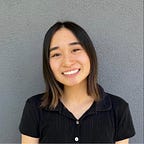Some Thoughts on the State of Asian America
Musician/activist Chris Iijima writes that the term “Asian American” was created in 1968 as a means to get Asian Americans involved with the progressive movement and help them empathize with other marginalized people groups. Since then, the definition of Asian American identity has become blurry and fragmented.
In 2021, we’re boba liberals, hanbok-wearing-congresswomen, kawaii TikTokkers, Trumpies, COVID scapegoats, and newly-attractive A-List Stars. We’re inclusive, we’re pan-Asian, but with an asterisk: the East Asian American experience still reigns supreme. In 2021, Subtle Asian Traits skyrockets to 1.9 million members, while Chinatowns crumble under the double-fists of gentrification and the pandemic. Our digital presence grows while our physical presence shrinks and gets flattened into the mainstream. You can now find gochujang at Pavilions. Will my kids even have an Asian grocery store to visit? Awkwafina gets a Golden Globe, but our elders get shoved over in the street. And still we cling to Whiteness, its creamy allure blinding us to our own ignorance.
Last night, I was lying in bed, unable to fall asleep. Maybe it was the taro milk tea I had (BOGO at OneZo with Chowbus!), or maybe it was the growing sense of fear, confusion, and numbness gnawing at my gut. So I decided to write this.
Over the summer, a Karen spewed hate at a random Asian woman exercising at Wilson Park in Torrance, CA (using the classic “go back to your country;” you would think they’d have come up with something more original by now). This park is in my Ye Ye and Nai Nai’s neighborhood; I grew up riding my bike there. Yesterday, a White man killed six Asian people in Atlanta, GA; my Wai Gong and Wai Po were just there last week doing grocery shopping. It could’ve been them, it could’ve been anywhere, any of us. There have been 3,795 reports of anti-Asian hate since the beginning of the pandemic, according to Stop AAPI Hate.
For every fragile, elderly, Asian body thrown to the ground, captured on shaky video, my heart breaks into a million shards. Please, not them. Our elders’ bodies are sacred, full of quiet dignity, and to see them subject to such senseless violence is viscerally painful. Within their bodies, our elders hold culture and history and trauma. They are our living reminders to remember what came before us and to shape a better future for Asian Americans and all people.
They were our ground-breakers, escaping violence and instability to navigate a society that told them they could never truly belong. So they made themselves small, polite, and acceptable, and still, they are shoved to the pavement.
Something isn’t working, but I don’t exactly know how to fix it. The accolades, the fame, the degrees, the Oscar nominations — they feel kind of hollow right now. Click, I see Steven Yeun smiling wide, click, I see Noel Quintana’s bloodied face, click, I see a colorful infographic inviting me to do something to help RIGHT NOW. Click, I see Asian Americans processing their racial pain through concerning expressions of anti-Blackness — both intentionally and unintentionally.
I feel as if I’m watching everything from a distance, and I struggle to pull concrete feelings and solutions from the hazy recesses of my brain. Are these attacks really racially-motivated? Are they just isolated incidents? Have they just been under-reported all along? I feel numb; it’s easier to push down my feelings than to confront and express them. Maybe that’s very Model Minority of me, so that’s why I decided to post this. I just keep thinking, God, why? And what are we supposed to do next?
In 2001, Chris Iijima said, “There is much talk at present about getting Asian Americans into positions of greater visibility and political power, but there is less talk about what should be done once that visibility and power is achieved.”
(Pontifications on the Distinctions Between Grains of Sand and Yellow Pearls)
20 years later, have we achieved this “visibility and power”? Some people seem to think so. I just hope that we make space to grieve, process, and pray, in ways that bring healing. I hope that we continue to speak up and act in ways that are meaningful, and not performative or misdirected. I hope that our non-Asian friends would see the reality of our pain, and that we as Asian Americans would see other minority groups as partners and not competitors.
I truly believe that solidarity and education are tangible ways forward, so I’m going to link/tag some of my favorite AAPI organizations/people/resources (non-exhaustive list — definitely do your own research as you feel moved)!
For News and Data:
For Education and Healing:
For Context:
Minor Feelings by Cathy Park Hong
